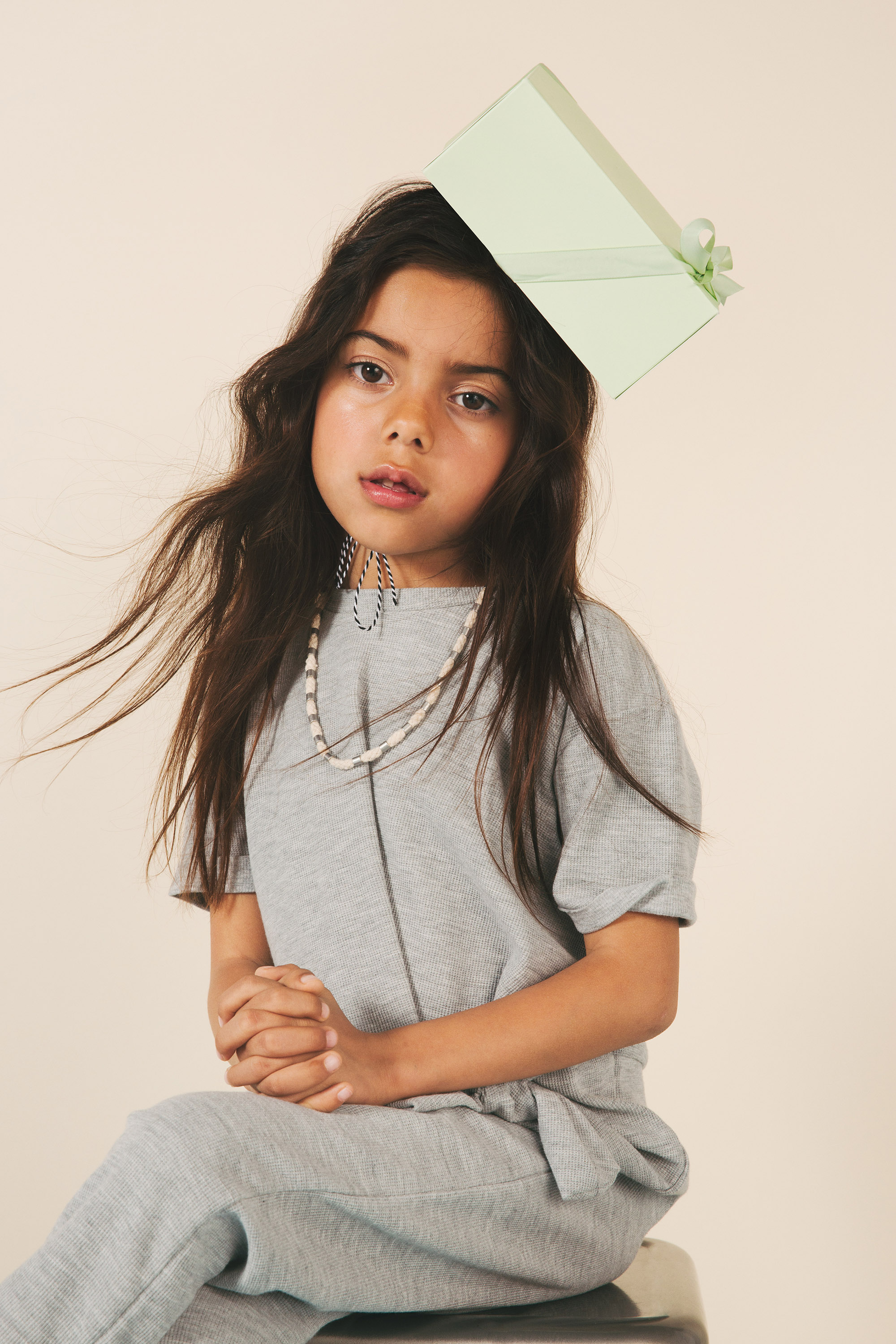 Kindergarteners are my favorite kind of people. They’re funny and quirky and always seem to be sticky. They’re also my favorite because they’re fearless.
Kindergarteners are my favorite kind of people. They’re funny and quirky and always seem to be sticky. They’re also my favorite because they’re fearless.
Have you ever spent time with kindergarteners? If you get a chance, go up to a group of them and ask them this: Who of you are artists or singers or dancers?
I guarantee that before you can finish your sentence, you’ll have 5 or 6 of the bravest ones up front pulling out all of the stops, whipping out their best tree or twirl or rendition of ‘the sun will come out tomorrow.’ Now try that same thing in a group of college students—or even better, a group of professionals.
My dad tells the story of when he was at a conference with 400 law enforcement professionals—experts in their field, people with PHD’s and fully loaded guns on their belts. The speaker asked the same question: Who of you are artists or singers or dancers? There were a couple of nervous coughs as everybody averted their eyes, not wanting to make the rookie mistake of making eye contact with the guy up front.
Not one person raised their hand.
You’d assume that as we get older, we’d become more confident. You’d also assume that the kindergarteners have more to lose because their peers are probably a bit more vocal in their disapproval (not yet having learned the art of tact or political correctness) and because of the embarrassing reality of their still untrained bladders. But time and time again, I can promise that you’d find more reckless confidence in a group of 5 year olds than in a group of 500 qualified, professional adults.
Doesn’t that just make you wonder?
Here’s the conclusion I’ve been drawing as I’ve seen this played out in my life, over and over again: There’s a point, probably somewhere around middle school, when you start to become horrifyingly aware of your potential to embarrass yourself. You start to understand that there are certain people that are the artists and the singers and the dancers—and that generally, those activities should be left to those with a natural affinity for them.
We discover, or maybe just assume that a lot of humiliation can be eliminated if we avoid things that we might not be awesome at right away. And although in some cases there may be some truth to this, it’s not a truth that lends itself to any kind of freedom.
When I was little, I loved to sing—until about 3rd grade when I choked in a school talent show- marking the end of my solo career. I sang in choir, but I literally had to be medicated any time I was forced to sing alone—my voice squeaking out as a shadow of what I (and the walls of my shower) knew it was capable of.
It wasn’t until halfway through my 23rd year of life that I finally began to break through some of that fear, letting my actual voice out. I was terrified at first—scared of being rejected for something that came from deep inside of me—and then things changed. A friend of mine told me to sing and to sing loudly and to forget about what it sounded like. He gave me the permission to be terrible, if need-be, but not to let that stop me.
And with the loving permission to be really, really bad, I realized that it actually was less about the product than it was about the process. It was less about what my voice sounded like, and more about the freedom I could step into if I just opened my mouth and let ‘er rip.
The freedom was incredible. It was amazing what my voice sounded like when it wasn’t choked by my fear of what other people were thinking of me. Within a month or two of that moment, I was playing guitar and singing in front of huge groups of people- actually surprisingly confidently. I may not become a recording artist—then again, you never know—but there’s a freedom that I’ve found in not being ashamed of the sound that’s inside of me.
And it made me wonder…
What would happen if we, as confident, degree holding, weapon wielding (or not…) adults, decided to paint? What would happen if we decided to sing or learn to play the guitar, or take a dance class? What would happen if we decided to go for that thing that we’ve always dreamed about, but always left to the professionals?
What kind of freedom are we missing out on by limiting what we do to the things that we’ve tried and already know that we’re good at? And what would our voices, paintings, and dancing be like if they weren’t choked with fear?
Kindergarteners are finding out—shouldn’t we?
Image via Darling Issue 24 by Kat Borchart
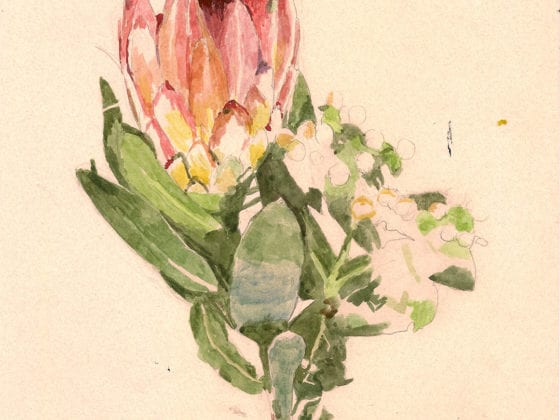

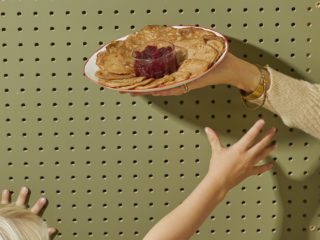


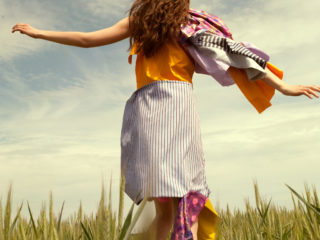

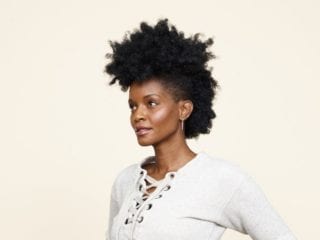

8 comments
Very true, sadly so much creative potential is kept hidden in most people. We should definitely encourage each other to create more without judgement.
xx
http://elsale.co
What an insightful and inspirational post! I’ve always admired the innocence kids have that we adults don’t. Thank you, I needed to read this. 🙂
–
Charmaine Ng | Architecture & Lifestyle Blog
http://charmainenyw.com
Nancy- what a beautiful picture. I bet they loved it. 🙂
Thank you so much Hannah! What a beautiful compliment! I love that- ‘because doing it scares me in the best possible way.’ Keep it up!
Anna, I’m so glad that you’re following your dream of being in a musical. That’s so exciting. I love that you’re living proof that we can do anything – with a little bit of courage. 🙂
This is just wonderful! I love the comparison of the children and the adults. We do indeed become more inhibited as we age. I used to love singing to my children. I’d sing in the car as well as at bedtime, belting it out for my little audience. They still remember those special songs and I look forward to singing them again to my grandchildren.
Stephanie, you have become my favorite contributor. I so look forward to checking for a new post and sometimes without even reading the by line I know it’s you. Thank you for yet another great piece. Setting down the iPad now to go sketch, because doing it scares me in the best possible way. Here’s to sticking it to our inner critics… 🙂
I’m currently doing this! I had “Be in a musical” on my bucket list for years, and I finally worked up enough courage to audition. I just finished up a local production of Oliver! where I was cast as a principal character AND got an extra solo part. For years, I had been too nervous to really sing out even in front of my family, but in the past two weeks, I have sung to hundreds of people and walked away with the knowledge that I did a good job and finished strong. I’m definitely planning on doing more musicals in the future and who knows what else. 😉